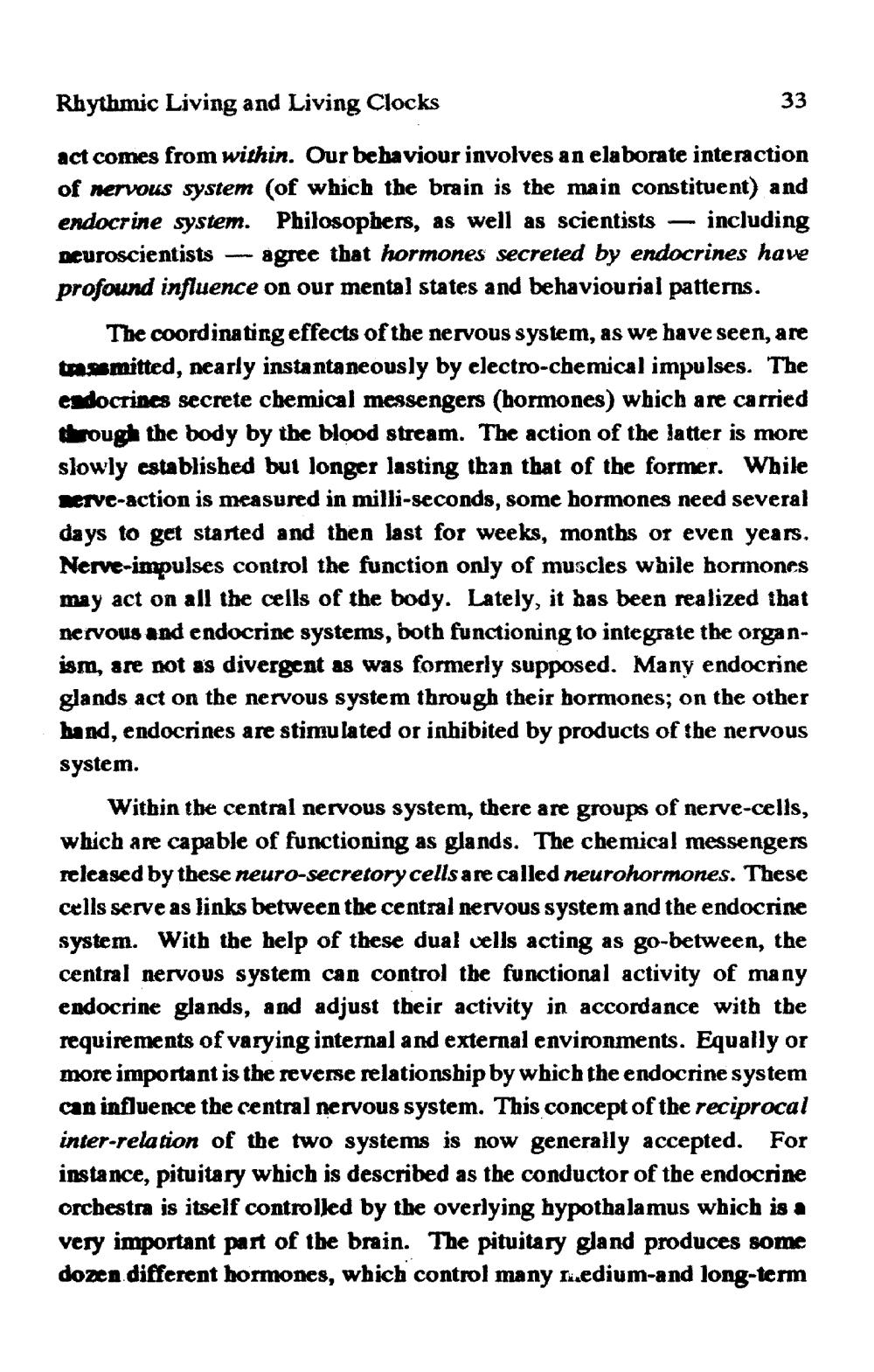________________
33
Rhythmic Living and Living Clocks
act comes from within. Our behaviour involves an elaborate interaction of nervous system (of which the brain is the main constituent) and endocrine system. Philosophers, as well as scientists - including neuroscientists agree that hormones secreted by endocrines have profound influence on our mental states and behaviourial patterns.
The coordinating effects of the nervous system, as we have seen, are transmitted, nearly instantaneously by electro-chemical impulses. The endocrines secrete chemical messengers (hormones) which are carried through the body by the blood stream. The action of the latter is more slowly established but longer lasting than that of the former. While nerve-action is measured in milli-seconds, some hormones need several days to get started and then last for weeks, months or even years. Nerve-impulses control the function only of muscles while hormones may act on all the cells of the body. Lately, it has been realized that nervous and endocrine systems, both functioning to integrate the organism, are not as divergent as was formerly supposed. Many endocrine glands act on the nervous system through their hormones; on the other hand, endocrines are stimulated or inhibited by products of the nervous system.
Within the central nervous system, there are groups of nerve-cells, which are capable of functioning as glands. The chemical messengers released by these neuro-secretory cells are called neurohormones. These cells serve as links between the central nervous system and the endocrine system. With the help of these dual cells acting as go-between, the central nervous system can control the functional activity of many endocrine glands, and adjust their activity in accordance with the requirements of varying internal and external environments. Equally or more important is the reverse relationship by which the endocrine system can influence the central nervous system. This concept of the reciprocal inter-relation of the two systems is now generally accepted. For instance, pituitary which is described as the conductor of the endocrine orchestra is itself controlled by the overlying hypothalamus which is a very important part of the brain. The pituitary gland produces some dozen different hormones, which control many medium-and long-term




